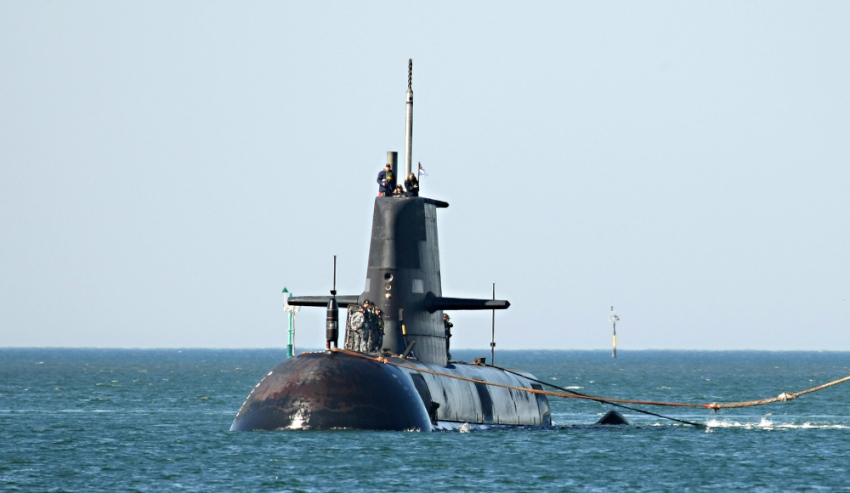In mid-September, the Commonwealth government scrapped the much scrutinised SEA 1000 contract in favour of locally built nuclear-powered submarines. So, what led to the once-in-a-lifetime decision?
In 2016, the Commonwealth government tasked France-based shipbuilding company Naval Group with the development of 12 Attack Class submarines, modelled on the nuclear-powered Shortfin Barracuda. The then $50 billion contract formed part of a historic investment in next-generation warfighting capability for the Royal Australian Navy, with the future submarines set to replace the ageing Collins Class fleet.
However, the deal was marred with controversy, with observers questioning Naval Group’s management of the program amid concerns over rising costs, a multi-decade delivery timeline, and murky Australian Industry Capability targets. Following his appointment as Minister for Defence earlier this year, Peter Dutton sought assurances from the prime.
Despite “extensive briefings” with company representatives, the minister conceded that “many questions” continue to plague the program.
“I have got more detail to go through. I want to see the subs delivered on time and on budget,” he said.
Minister Dutton stressed the government would honour its agreement with Naval Group unless it fails to meet its obligations.
“[Like] with any contract that the Commonwealth enters into, those people that have contracted with us know that we are going to hold them to the conditions of the contract and if there are penalties to pay or there’s other action that we can take, that will happen,” he said.
“I want greater performance than what we’ve seen previously.”
In response to scrutiny, Naval Group overhauled its leadership team, appointing a new-look team to spearhead a transformation and ease government concerns. In May, Naval Group Australia appointed Lilian Brayle as the permanent replacement for Jean-Michel Billig as executive vice president of its Future Submarine program.
But this was not the only senior leadership appointment.
Naval Group Australia had also appointed former managing director of Rio Tinto, David Peever, as its new chair. Peever joined Chris Jenkins — chief executive of Thales Australia and national president of the Australian Industry Group — and Kim Gillis — former deputy secretary of the Capability, Acquisition and Sustainment Group (CASG).
Jenkins and Gillis, who were appointed in December, were expected to leverage their experience in the sector to enhance the prime’s links with local industry. In a further effort to assure stakeholders of its commitment to fulfilling its contractual obligations, Naval Group Australia released a package valued at over $1 billion, aimed at encouraging local firms to join its supply chain.
The package included $900 million in manufacturing work for the delivery of 23 complex items of submarine machinery and a $100 million expression of interest to supply tools and equipment to fit-out the new submarine construction yard at Osborne. An additional $1 million in new supply opportunities for local industry was also offered via its Industry Capability Network portal, including 27 separate work packages comprising of 39 specific items required to develop the next-generation fleet.
As of August, Naval Group Australia had issued $10 million in contracts to over 100 local suppliers for the delivery of common technology expected to be used in the construction of the 12 Attack Class submarines.
These included steels and alloys, insulation, fasteners, pipes, filters, O-rings, hoses, sockets, valves, seals, cables and switches.
The prime’s push to bolster engagement with local industry had resulted in over 2,000 Australian firms registering their interest via its network portal.
Despite Naval Group’s efforts to rebuild trust in its leadership, critics continued to call for an overhaul of the Attack Class project. The critics eventually got their way, with the government striking a new trilateral deal with the United Kingdom and the United States in mid-September, dubbed AUKUS.
The new multinational agreement will see nuclear-powered submarines built in Adelaide, leveraging skills and resources provided by stakeholders in the US and UK. This signalled the termination of Naval group’s contract, with the company expressing its discontent.
“This is a major disappointment for Naval Group, which was offering Australia a regionally superior conventional submarine with exceptional performances,” a spokesperson told Defence Connect.
“Naval Group was also offering Australia a sovereign submarine capability making unrivalled commitments in terms of technology transfer, jobs and local content.
“For five years, Naval Group teams, both in France and in Australia, as well as our partners, have given their best and Naval Group has delivered on all its commitments.”
However, in announcing the government’s new submarines strategy, Prime Minister Morrison stressed that the overhaul was not an indictment on Naval Group’s management of the Attack Class program.
“This [new strategy] in no way reflects, in any way, shape, or form, on the Attack Class submarine, Naval Group, and the commitment of the French government and indeed President [Emmanuel] Macron personally,” he said.
“They have been good partners [but] this is about our strategic interests, our strategic capability requirements, and a changed strategic environment.”
Details regarding the terms and conditions of the contract termination are yet to be announced.
This article originally appeared in the Defence Connect maritime special edition, which can be viewed here.








